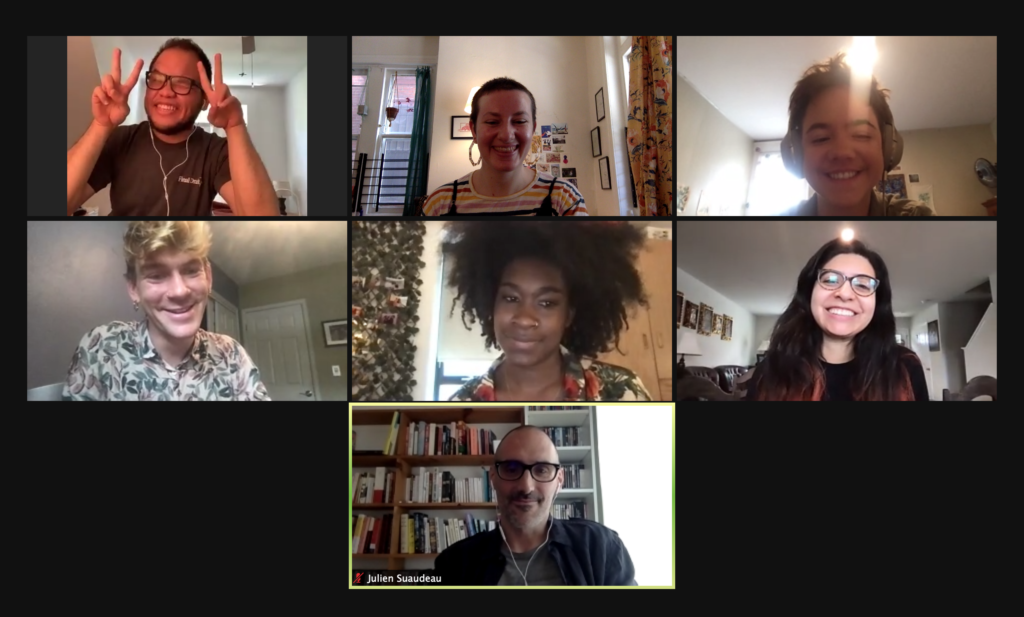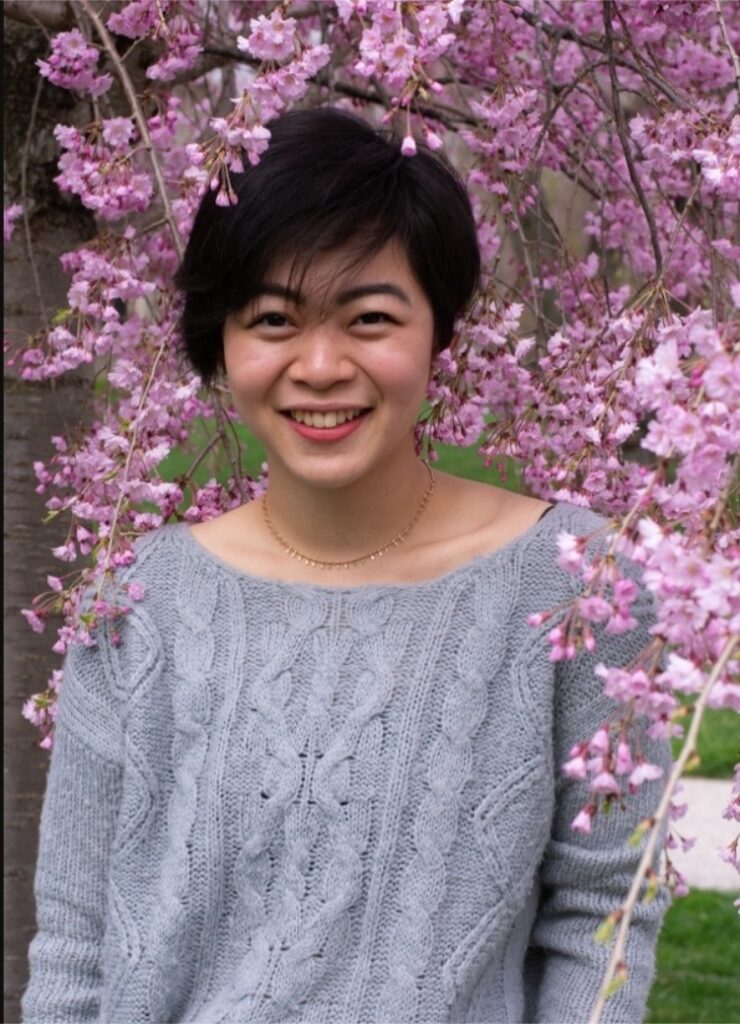
18 May Creativity from Limitation: The Tri-Co Film Festival Goes Virtual
BY HANNAH L CHINN
Even outside of a pandemic, putting together a student film festival is no easy task. But the COVID-19 pandemic brought a range of new questions—when everything’s gone virtual, it isn’t just the films that require creativity and ingenuity, but the planning of the event itself. That’s part of the thrill of the 10th Annual Tri-Co Film Festival, which showcases film and media work by current students (or recent graduates unable to submit in 2020 due to the pandemic) at Swarthmore, Haverford, and Bryn Mawr Colleges.
“Last year, we put on a virtual film festival in May, but with less than 2 months to prepare for the switch to virtual, there was a lot we weren’t able to plan for,” said film festival director Sophia Abraham-Raveson, who has directed the program for three years running. “This year we were able to plan ahead and take advantage of all the possibilities that the virtual space allowed us.”
That involved a rearrangement of the festival timeline to fit a COVID-altered school year calendar, as well as a revision of the rules to allow submissions from graduates unable to submit the previous year. It also required extensive planning from Abraham-Raveson and associate director Teddy Ogborn to build a 10-year-anniversary event that both stayed true to previous film festivals and adapted itself to pandemic precautions.

Several aspects of the festival remain similar, if not identical to past events. The films, usually screened at the Bryn Mawr Film Institute, are all hosted on the BMFI website this year instead. That digital format also allowed organizers a different approach to the traditionally 90-minute festival, introducing new opportunities to place films in conversation with one another. This year’s lineup features 12 films, categorized by juror-curators Kristal Sotomayor and Set Hernandez Rongkilyo into three separate, approximately half-hour programs: Diwa/Espíritu/Spirit, Buka/Ruptura/Fracture, and Katawan/Cuerpo/Body. It also includes a New Media section, which showcases five video essays and one conceptual video game piece (“Incomplete Cube – A Betrayal,” by Macintyre Sunde).
“It was hard to find the balance of showing the films in a high quality way, and capturing the feeling of a live event,” explained Abraham-Raveson. Ultimately, the team chose not to show the films live, instead planning a combined virtual awards ceremony and Q&A to be held live May 20th.
“We’ve never done filmmaker Q&As before, and this feels like an exciting new addition that will showcase the filmmakers and give them a chance to really engage with each other and their work. So while there is something special about a live theater audience that is hard to recreate, the circumstances allowed us to get creative and add valuable components to the festival that we’ve never had before,” Abraham-Raveson said.

That pandemic-generated inventiveness is reflected in the Tri-Co filmmakers’ work as well. In spite of distance, isolation, shifted class schedules, and other unprecedented obstacles, the pieces shine, engaging issues as heavy as mental illness and mourning (“Finds You Well,” by Grace Dumdaw) or as lighthearted as imaginary friendship (“Imaginary,” by Jake and Manny Rothman).
“While the pandemic has certainly affected students’ access to filmmaking resources and has ripple effects in all aspects of their lives and time commitments, we were stunned and delighted by the work we received from all three colleges,” Ogborn said.
In Diwa/Espíritu/Spirit, Lexie Iglesia’s “boobs for mom” combines shots of oranges and avocados against pink-tissue-backdrops with raw, vulnerable voice-overs. Alternately joyful, frenetic, and introspective, Chili Shi’s “HARISNYA, OR THE SUBLIME” layers sound, archival footage, and home videos to create a stunningly beautiful film that recalls Theresa Hak Kyung Cha’s work in its color and polyphony. In Buka/Ruptura/Fracture, Hyo Hyun (Nadia) Kim’s stop motion work plays with time, space, and form (“Windglobe”), while Shiko Njoroje’s “Muthoni” cuts smoothly between archival footage and sepia-toned camera work to retell a story of guerillas in 1950s Kenya. Katawan/Cuerpo/Body features a collective meditation on womanhood and mothering, interspersed with shots of each subject alongside a projection of her mother, literally placed in their shadows (“Womanhouse 403: The Table is Turning” by Sarah Berns-Zieve); while Jixin Jia displays mastery of space, stillness, and sound in “Slow Boat to China,” a series of four dream sequences exploring diaspora.

The New Media Sidebar, which Ogborn calls “a masterclass in the myriad forms a video essay can take,” is filled with work that highlights queer narratives, tackles issues of race and gender in film, and incorporates a wide range of source material — from 19th-century Japanese woodblock prints to modern American cartoons.
“The students were really creative in making films during these limited times,” Abraham-Raveson added. “We saw a lot of strong personal documentaries; a lot of creative experimental pieces using archival footage; and many films that addressed the current crises of the pandemic and racism. The limitations of the pandemic led to films that felt especially vulnerable and intimate.”
All films from the 10th Annual Tri-Co Film Festival are available to stream through Thursday, May 27. A livestreamed award ceremony, featuring a Q&A with student filmmakers, is scheduled for May 20 at 7 pm EST. Tickets are free; festival-goers can access content and events via registration on the Bryn Mawr Film Institute website.
cinéSPEAK is proud to be a Community Partner of the Tri-Co Film Festival.

Hannah L Chinn is a reporter and producer based in Philadelphia. They graduated from Bryn Mawr College in 2019.

Sorry, the comment form is closed at this time.